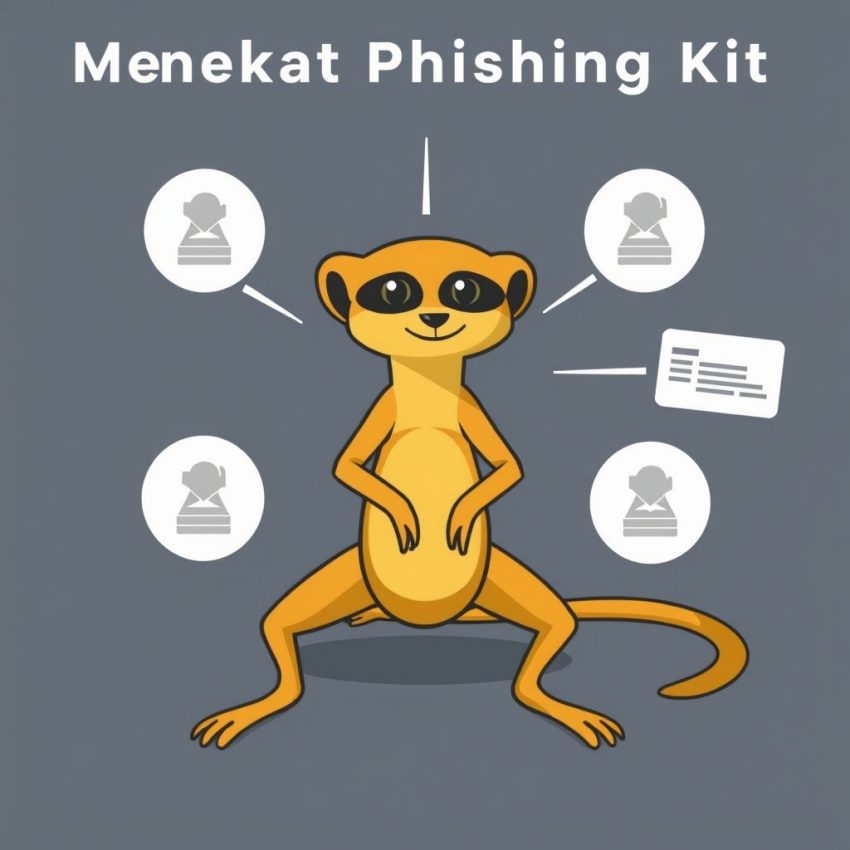Shape-Shifting Scammer: New Meerkat Phishing Kit Targets 114 Brands with DNS Trickery
A new, highly adaptable phishing kit dubbed "Meerkat" is making waves in the cybersecurity world for its sophisticated approach to impersonating a staggering 114 different brands. Unlike traditional phishing kits, Meerkat doesn't rely on static templates. Instead, it dynamically generates phishing pages based on the victim's own DNS records, making these attacks incredibly convincing and difficult to detect.
How Meerkat Works:
This cunning kit exploits a victim's DNS records, specifically the MX record which specifies the mail server responsible for accepting email messages on behalf of a domain. By querying this record, Meerkat identifies the email provider used by the target organization. This allows the kit to dynamically generate a phishing page that perfectly mimics the login portal of that specific email provider.
Imagine this: You receive an email seemingly from your company's IT department, alerting you to a potential security breach and urging you to update your password. Clicking the link takes you to a login page that looks exactly like your usual email login, complete with the correct branding and URL structure. The chances of falling for this sophisticated trap are significantly higher than with a generic phishing attempt.
114 Brands in the Crosshairs:
The sheer scale of Meerkat's target list is alarming. Researchers have identified 114 different brands being impersonated, ranging from major tech companies and financial institutions to popular social media platforms and online retailers. This wide net increases the likelihood of unsuspecting victims falling prey to the scam.
Why This is a Game Changer:
Meerkat represents a significant evolution in phishing techniques. Its dynamic nature makes it:
- Highly Convincing: The personalized phishing pages drastically reduce the typical red flags that users are trained to look for.
- Difficult to Detect: Traditional anti-phishing measures often rely on identifying known malicious URLs. Meerkat's dynamic generation bypasses these defenses.
- Highly Adaptable: The kit can easily be configured to target new brands and email providers, making it a persistent threat.
Protecting Yourself from Meerkat:
While Meerkat is sophisticated, there are still ways to protect yourself:
- Scrutinize Emails Carefully: Pay close attention to the sender's address, looking for misspellings or inconsistencies. Hover over links before clicking to see the actual destination URL.
- Enable Two-Factor Authentication (2FA): Even if your credentials are compromised, 2FA adds an extra layer of security, preventing unauthorized access.
- Stay Informed: Keep up-to-date on the latest phishing techniques and threats.
- Report Suspicious Emails: If you encounter a suspicious email, report it to your IT department or the impersonated organization.
The Bottom Line:
The Meerkat phishing kit is a stark reminder of the ever-evolving nature of cyber threats. By leveraging dynamic impersonation and exploiting DNS records, it presents a serious challenge to individuals and organizations alike. Staying vigilant, educating yourself, and adopting robust security practices are crucial in the fight against these advanced phishing attacks.
Don’t miss out on this exclusive deal, specially curated for our readers! Vegan Diet: Unlock the Key Benefits of Embracing a Plant-Based Lifestyle
This page includes affiliate links. If you make a qualifying purchase through these links, I may earn a commission at no extra cost to you. For more details, please refer to the disclaimer page. disclaimer page.

